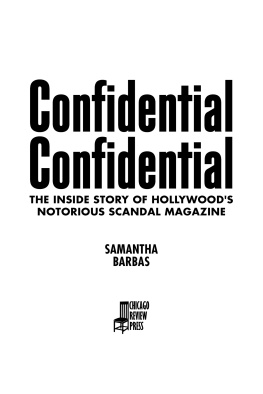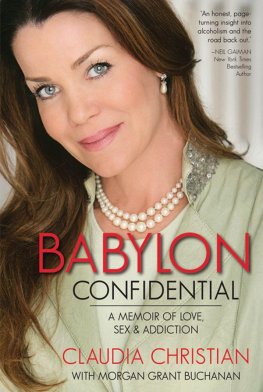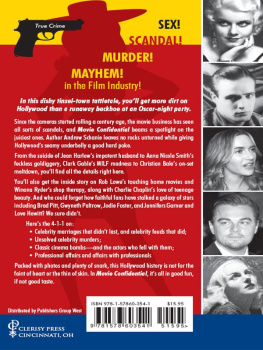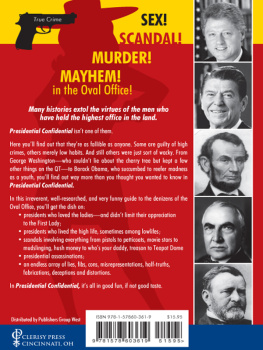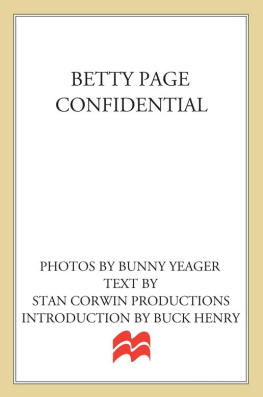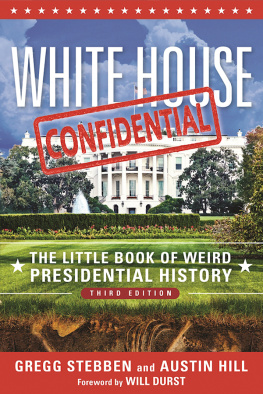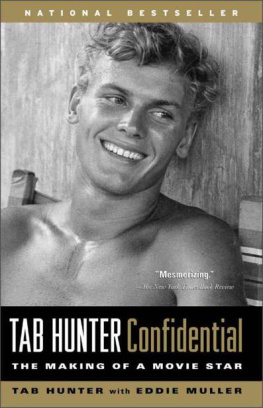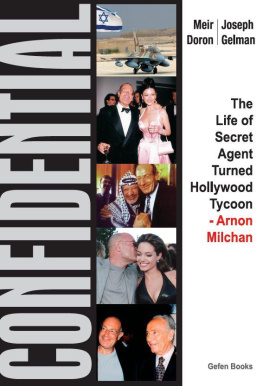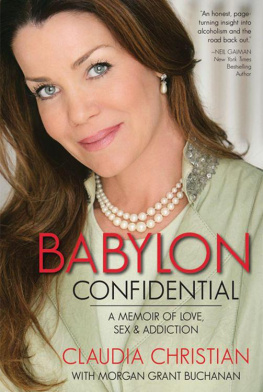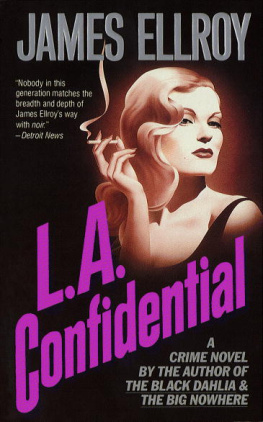Names: Barbas, Samantha author.
Title: Confidential Confidential : the inside story of Hollywoods notoriou
scandal magazine / Samantha Barbas.
Description: Chicago : Chicago Review Press, 2018. | Includes bibliographica
references and index.
Identifiers: LCCN 2017061185 (print) | LCCN 2018003706 (ebook) | ISBN 9780912777559 (adobe pdf) | ISBN 9780912777566 (kindle) | ISBN 9780912777573 (epub) | ISBN 9780912777542 (cloth) Subjects: LCSH: Confidential (New York, N.Y.) | Tabloid newspapersUnite
StatesHistory20th century. | Sensationalism in journalismUnite StatesHistory20th century.
Classification: LCC PN4900.C65 (ebook) | LCC PN4900.C65 B37 2018 (print) | DDC 051dc23
LC record available at https://lccn.loc.gov/2017061185
INTRODUCTION
IN 1955 I Love Lucy was one of Americas most popular TV shows. Its comic depictions of the trials and tribulations of married life enchanted millions of viewers each week. The program was based on the actual marriage of fiery redheaded comedienne Lucille Ball and her husband, Cuban-born bandleader Desi Arnaz. Fan magazines and Hollywood gossip columns mirrored their off-screen and on-screen personas. To fans, Lucy and Desi were just as devoted to each other in real life as they were on television.
The sleazy gossip magazine Confidential shattered the illusion. Its January 1955 cover story, Does Desi Really Love Lucy? revealed Desis flings with prostitutes. Desi is most certainly a duck-out daddy, wrote Confidential. He sprinkled his affections all over Hollywood for a number of years. And quite a bit of it has been bestowed on vice dollies who were paid handsomely for loving Desi briefly, but presumably as effectively as Lucy.
Confidentials next issue featured a sensational story about a torrid interracial liaison between Sammy Davis Jr. and Ava Gardner, who was then married to Frank Sinatra. Some girls go for gold, but its bronze that sends sultry Ava Gardner, Confidential reported. Later that year, Confidential revealed how Joe DiMaggio and Frank Sinatra broke into an apartment where they thought Marilyn Monroe, DiMaggios ex-wife, was having an affair. The infamous event would go down in Hollywood history as the Wrong Door Raid.
At a time when homosexuality was one of societys greatest stigmas, Confidential made waves by outing celebrities. Confidential revealed heartthrob actors Van Johnson and Tab Hunter as gay. Actress Lizabeth Scott was spotted among Hollywoods weird society of baritone babes. Liberace was outed in Why Liberaces Theme Song Should Be Mad About the Boy.
Bob Hope slept with a floozy, according to Confidential. Errol Flynn installed a two-way mirror in his mansion that he used to spy on visitors having sex in the guest bedroom. Ava Gardner and Lana Turner took part in a rollicking threesome with a Palm Springs bartender. Eddie Fisher entertained three chippies in a hotel room. Kim Novak slept her way to stardom. Mike Todd cheated on his wife, Elizabeth Taylor, with a stripper; Liz cheated on Mike with actor Victor Mature. Frank Sinatra was the Tarzan of the Boudoir because of the bowls of Wheaties he ate between rounds of lovemaking.
In the 1950s, Confidential magazine, Americas first celebrity scandal magazine, revealed stars misdeeds and transgressions in gritty, unvarnished detail. Deploying a vast Los Angelesbased network of informants and tipsters, publisher Robert Harrison destroyed Hollywoods carefully constructed image and created a massive media empire. Confidential became the bestselling magazine on American newsstands, surpassing Time, Life, and the Saturday Evening Post.
Confidentials spectacular rise was followed by an equally spectacular fall. Stars filed multimillion-dollar libel suits against Confidential, and California prosecuted the magazine for obscenity and criminal libel, publishing false statements with an intent to harm. The charges culminated in a star-studded 1957 trial, later described as the O. J. Simpson trial of its time. The state forced Confidential to tone down its gossip; shortly after, Harrison sold the magazine, and Confidentials career was over. But its legacy lives on in our obsession with gossip and celebrity scandal.
Confidential was the founder of sleazy celebrity gossip journalism in America. This book tells its story and reveals how the magazine revolutionized celebrity culture and American society in the 1950s and beyond. Confidential was the forerunner of People, the National Enquirer, and TMZ.com, and it was raunchier and more outrageous than all of them. With its wild red-yellow-and-blue covers, screaming headlines, and tawdry stories, Confidential exploded the pristine, candy-coated image of movie stars that Hollywood and the press had sold to the public. It transformed America from a nation of innocents to a more sophisticated, worldly people, wise to the phony and constructed nature of celebrity. It shifted reporting on celebrities from an enterprise of concealment and make-believe to one that was more frank, bawdy, and true.
The 1950s were an age of conformity and conservatismthe era of Mickey Mouse and Leave It to Beaver, of suburbia, anticommunism, and family valuesand Confidential tore through all of that like a wrecking ball. Confidential blew the top off Americas prim, upright self-image, and it ushered in the skepticism and cynicism toward authorities, images, and ideals that would come to define American life in the 1960s and after. Confidential redrew the boundaries between private and public life and the limits of public expression. It marked the end of an era of hush-hushof secrets, closets, and sexual taboosand the beginning of our age of tell-all exposure. Confidential shattered Americas complacency and exploded its innocence. In doing that, it lay the foundations of our own more jaded, weary times.
Confidential magazine was the brainchild of Robert Harrison, one of the unsung media pioneers of the twentieth century. The son of Russian Jewish immigrants, a ladies man, and a slick nightclub playboy, Harrison started his career in the 1940s when he published the first pinup magazines in the country. By the end of the decade, Harrison, renowned as the cheesecake king, was publishing six different girlie magazines.
In the early 1950s, Harrison decided to expand his empire with an expos magazine revealing sensational stories about crime, sin, and urban vice. Promising to go behind the scenes and reveal facts that were stunning, hideous, naughty, taboo, torrid, daring, shocking, sinful, and 100% true!, Confidential debuted in 1952. The racist, homophobic, right-wing publication became famous for exposing communists and for outing homosexuals in politics and high society. Playing to the publics worst fears and taboos, Confidential hit a nerve. But it wasnt until Confidential started reporting on movie stars that it became a true sensation.
Before Confidential, Hollywood was literally a dream factory. As depicted in fan magazines and the mainstream press, movie stars were icons of perfection, wholesomeness, and Americana. Though they might have lived more glamorously than Main Street, at heart they were just folksthey paid off their mortgages, doted on their children, and never cheated on their spouses. The powerful film studios, deploying an army of press agents and fixers, concealed messier, dirtier truths. Los Angeles cops and judges were paid to ignore stars domestic violence, partying, and drug abuse. The studios sent pregnant, unmarried actresses off to have secret abortions. Hollywood spared no expense to conceal homosexuality, considered the most scandalous transgression of all. Dependent on the studios for advertising and access to stars, the press colluded in the cover-up, even though most journalists knew the real story.

